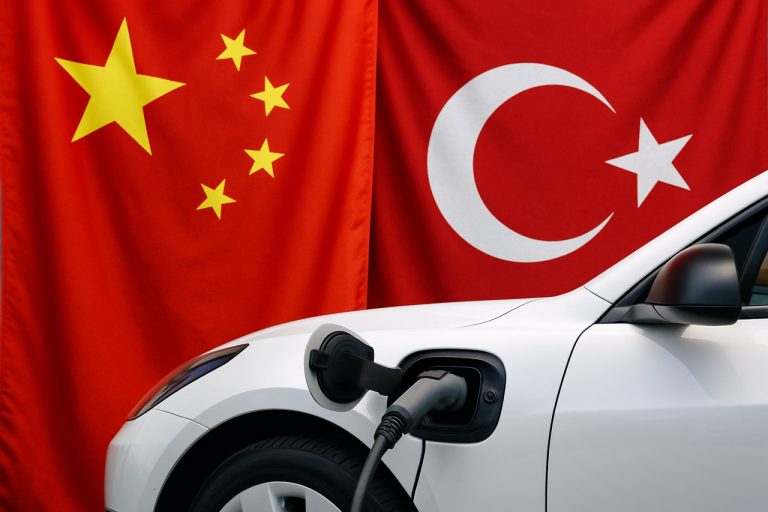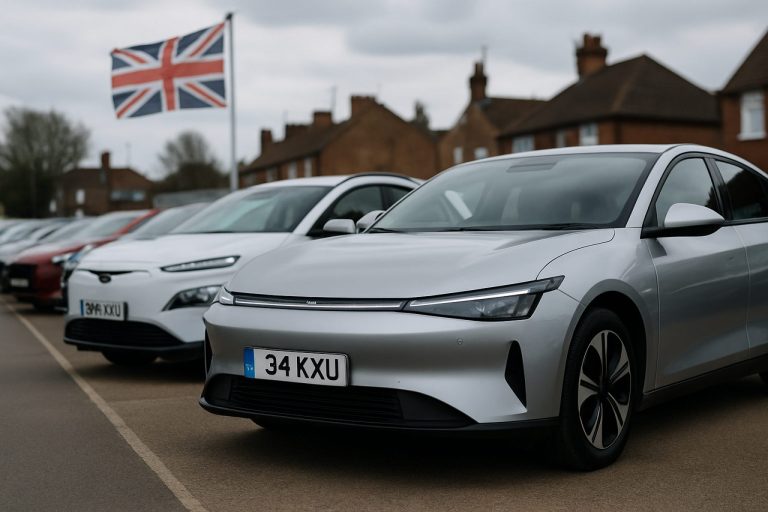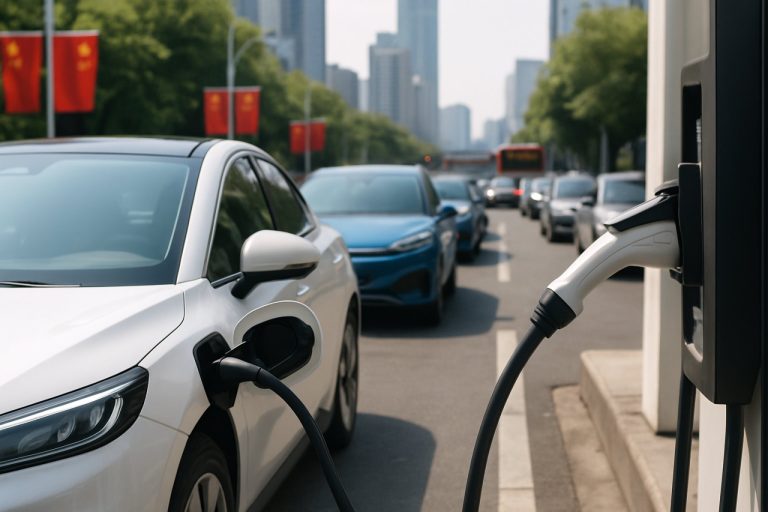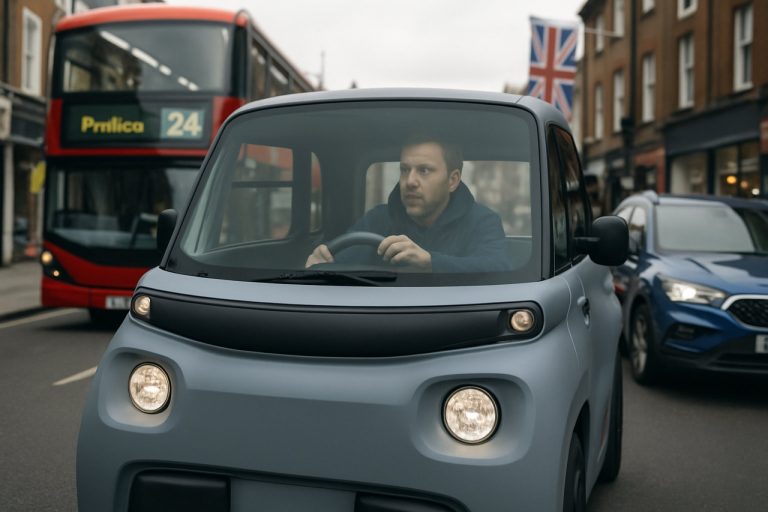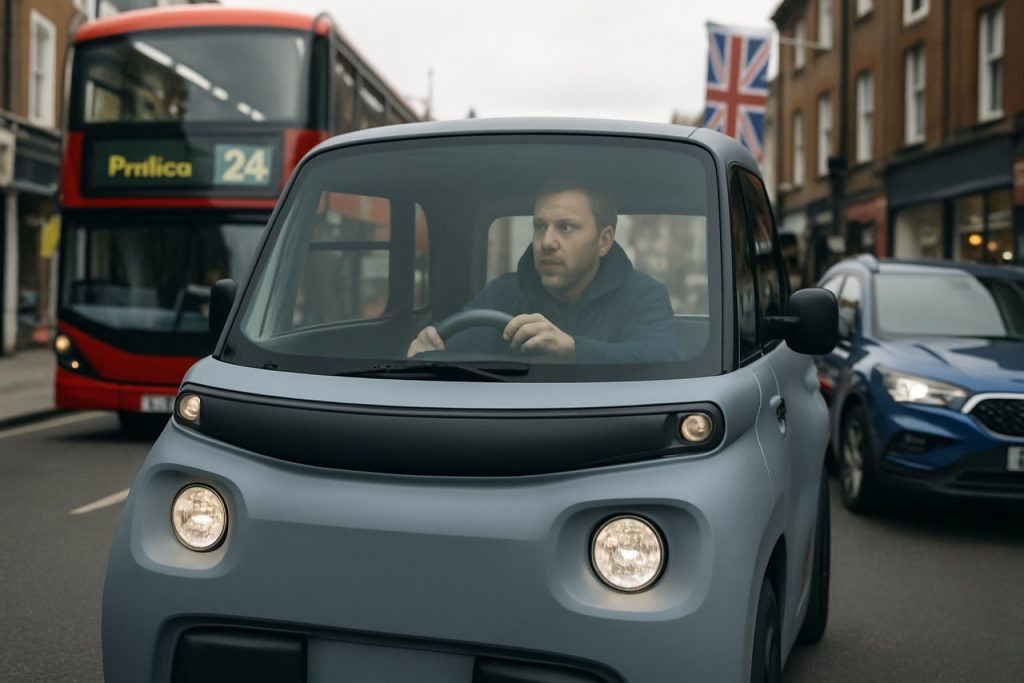
- Chinese electric vehicles (EVs) have rapidly increased their UK market share, reaching 5.3% in 2024, up from 1.3% the previous year.
- Key drivers include aggressive marketing, advanced battery technology, and competitive pricing that challenges established Western brands.
- British consumers are increasingly open to new EV brands, moving away from traditional brand loyalty as value and innovation take priority.
- Chinese EVs offer improved range, features, and affordability, enhancing choice for buyers and pushing local brands to innovate and lower prices.
- Ongoing trade dynamics make the UK a strategic market for Chinese car makers, further accelerating change in car-buying habits and preferences.
A tidal shift is sweeping through Britain’s auto market. Look closely at showroom floors and city streets, and a new wave of contenders is seizing the public eye—Chinese electric vehicle (EV) brands bursting onto the scene with impressive momentum.
Just last year, Chinese automakers claimed a modest 1.3% share of the UK market. Today, that share has soared to an estimated 5.3%. The surge is impossible to ignore. Platforms like the UK’s largest online car marketplace, Auto Trader, have counted more than 1.4 million ad views for Chinese car brands in the first four months of this year alone. Names that may have puzzled even avid car fans—Jieke, Leapmotor, Skywell, Omoda, and Xpeng—have joined the ranks of established brands like BYD and Great Wall Motors, swiftly becoming familiar options for British drivers.
How did this transformation come about so quickly? The answer lies in a combination of aggressive marketing, innovative technology, and shifting global dynamics. Sponsorships of massive events such as the 2024 UEFA European Championship have put these unfamiliar badges front-and-center, turning them into household names for millions of football fans across Britain.
Under the hood, Chinese cars hide another secret weapon: affordability powered by cutting-edge battery tech. By leveraging economies of scale and advanced, lower-cost battery technologies, Chinese automakers consistently deliver EVs that undercut Western rivals on price without sacrificing features. In an era where the cost-of-living weighs on every household and environmental concerns are reshaping consumer values, the proposition is irresistible.
Moreover, traditional brand allegiance—so strong with petrol and diesel vehicles—appears far less sticky with electric models. British consumers, previously loyal to legacy badges, are increasingly willing to give new entrants a shot, especially when the value and tech are right.
Global politics add fuel to the fire. Ongoing trade tensions between the US, EU, and China have led to volatile tariffs and supply chains. Paradoxically, this volatility has boosted the UK’s allure as a market, as China seeks new frontiers to push its rapidly advancing electric fleet.
The impact is already reshaping the UK’s roads and car-buying habits:
- An array of new models catering to diverse tastes and budgets.
- Improved battery range and reliability as new players jostle to stand out.
- Upward pressure on local brands to innovate and reduce prices.
As competition accelerates, industry experts predict more Chinese brands will launch vehicles in the UK soon. Their rise promises to reshape not just what Britons drive, but how they think about cars entirely.
For consumers, the key message is clear: the age of limited choices and high prices in electric vehicles is fading fast. Expect fierce innovation, better deals, and a future where global boundaries matter less than the technology humming beneath your bonnet.
Readers curious about the evolving auto landscape can find deeper insights and the latest developments on trusted sites like BBC and Auto Trader, which closely track automotive trends in the UK and beyond.
The bottom line: Britain’s appetite for affordable, high-tech electric vehicles has found an unexpected match—and the ride is only just beginning.
Why Chinese Electric Cars Are Taking Over UK Streets (And What Every Car Buyer Needs To Know)
The Chinese EV Takeover: More Than Just Hype
Chinese electric vehicle (EV) brands aren’t just making a splash in the UK—they’re transforming the entire auto industry. While the source article highlights their soaring market share and aggressive strategies, there’s even more happening under the surface. Let’s dig into additional crucial facts, trends, and actionable advice for anyone considering a Chinese EV in the UK or simply trying to keep up with the shifting automotive landscape.
—
More Facts Behind the Surge of Chinese EVs in Britain
1. Deep Investment in Battery Tech and Vertical Integration
– Chinese automakers like BYD are global leaders in battery technology, especially Lithium Iron Phosphate (LFP) batteries, which offer better safety, lifespan, and affordability than traditional lithium-ion cells ([Reuters](https://www.reuters.com)).
– Companies such as CATL and BYD also control significant portions of their battery supply chain, reducing production costs and price volatility.
2. Government Support Accelerates Growth
– China has provided massive state subsidies and direct investments for both automakers and battery development, enabling these firms to scale rapidly and enter international markets with competitive pricing ([BBC](https://www.bbc.com)).
– The UK, facing an EV transition mandate (80% new cars electric by 2030), views the influx of affordable Chinese models as a strategic asset to meet environmental goals.
3. Rapid Tech Advancement and Over-the-Air Updates
– Chinese EVs are at the forefront of tech innovation: 360-degree cameras, in-car AI assistants, fast-charging, and seamless smartphone integration are becoming standard.
4. Global Expansion Playbook
– Chinese brands are choosing the UK as a launchpad into Europe due to lower import restrictions post-Brexit compared to the EU. (Counterpoint Research)
—
Chinese EV Brands: Features, Pricing & Best-Known Models
– BYD Atto 3
– Price: From around £36,000
– Key features: 260-mile range, heat pump, advanced driver aids
– MG4 Electric (SAIC-owned, but now truly global)
– Price: From £27,495
– Key features: 280-mile WLTP range, 10.25-inch touchscreen, robust warranty
– XPENG G6
– Price: Estimated £40,000+
– Stand-outs: Autonomous driving tech, “Xmart OS” in-car software
– Omoda 5 (Chery)
– Price: Targeting £30,000-£35,000 range
– Highlights: Bold styling, smart connectivity
Scroll through the Auto Trader listings and you’ll see even more models coming soon.
—
How-To: Buy a Chinese EV in the UK—5 Simple Steps
1. Study aftersales & warranty—Consider parts availability and local dealer presence.
2. Test drive multiple models—Compare tech features, build quality, and comfort.
3. Check for over-the-air updates—Software support can extend your car’s useful life.
4. Evaluate charging infrastructure—See if your EV supports rapid charging (CCS, CHAdeMO, etc.).
5. Read owner reviews—Check trusted forums and YouTube for honest feedback.
—
Pros & Cons Overview
| Pros | Cons |
|———————————-|——————————————-|
| Lower prices for comparable EVs | Limited brand reputation in the UK |
| Advanced in-car tech | Aftersales network still growing |
| Impressive battery range | Unknown long-term reliability |
| Fast production cycles | Potential import tariffs post-2024 |
| Broad model selection | Resale value uncertain |
—
Security, Sustainability & Real-World Use
– Security: Some models offer leading ADAS and remote diagnostics, but always check for GDPR compliance and data privacy practices ([Which?](https://www.which.co.uk)).
– Sustainability: Chinese manufacturers tout lower-carbon battery production but concerns remain about supply chain transparency (Amnesty International studies).
– Real-World Use: Owners praise spacious interiors and quality-of-life features, but some report sparse dealership networks for repairs.
—
Market Trends and Future Outlook
– Forecast: Chinese automakers could claim 15% of the UK market by 2027 if momentum continues (BloombergNEF).
– Controversy: EU and UK policymakers debate import tariffs and fair competition, which may affect future availability or pricing.
– Industry Response: British icons like MINI and Jaguar are accelerating their own EV plans to compete.
—
Frequently Asked Questions
Q: Are parts, warranty, and servicing reliable for Chinese EVs in the UK?
A: Coverage is expanding rapidly. BYD and MG now have nationwide dealer networks. For newer brands, ask about certified repair shops before buying.
Q: Will buying a Chinese EV hurt my car’s resale value?
A: Resale trends are unclear, but MGs have shown surprisingly strong value retention, especially for EVs under 3 years old ([Auto Express](https://www.autoexpress.co.uk)).
Q: Are Chinese cars safe?
A: Most new arrivals undergo Euro NCAP safety testing. BYD Atto 3 and MG4 have received 5-star safety ratings, offering airbags, ADAS, and more.
—
Actionable Recommendations & Quick Tips
– Always request a full charging cable kit and check software update policies before buying.
– Compare insurance quotes—some models can be pricier to insure due to data on theft or repair costs.
– Stay updated through the BBC for policy and tariff changes impacting Chinese vehicles.
– Use PlugShare or Zap-Map to plan your charging routine and check compatibility before you buy.
—
Conclusion
The British EV marketplace is transforming at unprecedented speed. Chinese cars deliver exceptional value, fresh tech, and real competition to long-standing Western brands. For car buyers, this signals more power of choice, better deals, and faster leaps in innovation—but with a need for careful research on warranty, servicing, and long-term support.
Whether you’re test-driving today or planning for 2025, the message is clear: the new electric era on UK roads is inclusive, dynamic, and—like all major trends—just getting started.
